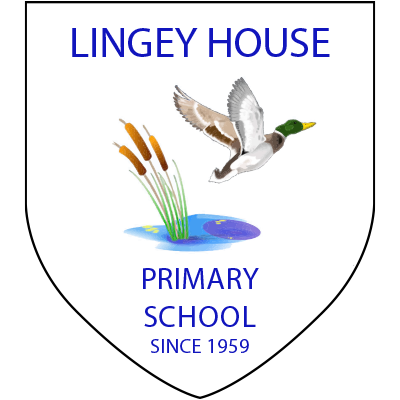Computing
Computing
Subject Lead: Miss F Langman

Curriculum Rationale - Computing
Intent
At Lingey House Primary School all of our children are encouraged to be successful in an ever-changing world. Computing and technology are central to this. It is our intent that our school continues to evolve and keep up to date with changes in technology. In computing, we teach a progressive curriculum using a range of technology, apps and software. We deliver a high-quality computing education to enable pupils to use computational thinking and creativity to understand and make changes to the world. We also encourage discussion and activities that enable the children to think about how they use technology safely and respectfully in everyday life outside of the school environment. Furthermore, we encourage technology to be used as a tool across the curriculum enabling children to develop skills, knowledge and confidence ensuring that computing is a subject in which children can implement skills to enhance learning in other areas of the curriculum. This will lead to children being active participants in a digital world.
Implementation
Our computing curriculum is sequenced in a way that builds upon prior knowledge and acknowledges that children are exposed to modern computing every day in the home environment. Each lesson is sequenced so that it builds on the learning from the previous lesson, and where appropriate, activities are scaffolded so that all pupils can succeed and thrive. Scaffolded activities provide pupils with extra resources, such as visual prompts, to reach the same learning goals as the rest of the class. Exploratory tasks foster a deeper understanding of a concept, encouraging pupils to apply their learning in different contexts and make connections with other learning experiences.
Early Years
Children begin to learn about computing right from the beginning of their education at Lingey House. In Nursery and Reception, children are encouraged to safely use a range of technology including computers, tablets, cameras and remote control vehicles to help them develop their speaking and listening; fine and gross motor skills and number. We recognise that even our youngest pupils start school with an understanding of some of the technology around them.
Key Stage 1
In Year 1 and 2, the Computing curriculum encompasses the following categories:
-
Understand what algorithms are; how they are implemented as programs on digital devices; and that programs execute by following precise and unambiguous instructions,
-
Create and debug simple programs,
-
Use logical reasoning to predict the behaviour of simple programs,
-
use technology purposefully to create, organise, store, manipulate and retrieve digital content
-
recognise common uses of information technology beyond school
-
use technology safely and respectfully, keeping personal information private; identify where to go for help and support when they have concerns about content or contact on the internet or other online technologies.
Key Stage 2
Throughout Years 3, 4,5 and 6, children will also learn to:
-
Design, write and debug programs that accomplish specific goals, including controlling or simulating physical systems; solve problems by decomposing them into smaller parts,
-
Use sequence, selection, and repetition in programs; work with variables and various forms of input and output
-
Use logical reasoning to explain how some simple algorithms work and to detect and correct errors in algorithms and programs
-
Understand computer networks including the internet; how they can provide multiple services, such as the world wide web; and the opportunities they offer for communication and collaboration
-
Use search technologies effectively, appreciate how results are selected and ranked, and be discerning in evaluating digital content
-
Select, use and combine a variety of software (including internet services) on a range of digital devices to design and create a range of programs, systems and content that accomplish given goals, including collecting, analysing, evaluating and presenting data and information
-
use technology safely, respectfully and responsibly; recognise acceptable/unacceptable behaviour; identify a range of ways to report concerns about content and contact.
Impact
Our children at Lingey House will become confident in using a range of different apps, software and programmes. Children will become more confident using their computational thinking and enquiry skills as well as understanding how to keep themselves safe in an everchanging world. Children will be empowered enabling them to be active participants in a digital world.
Overview

